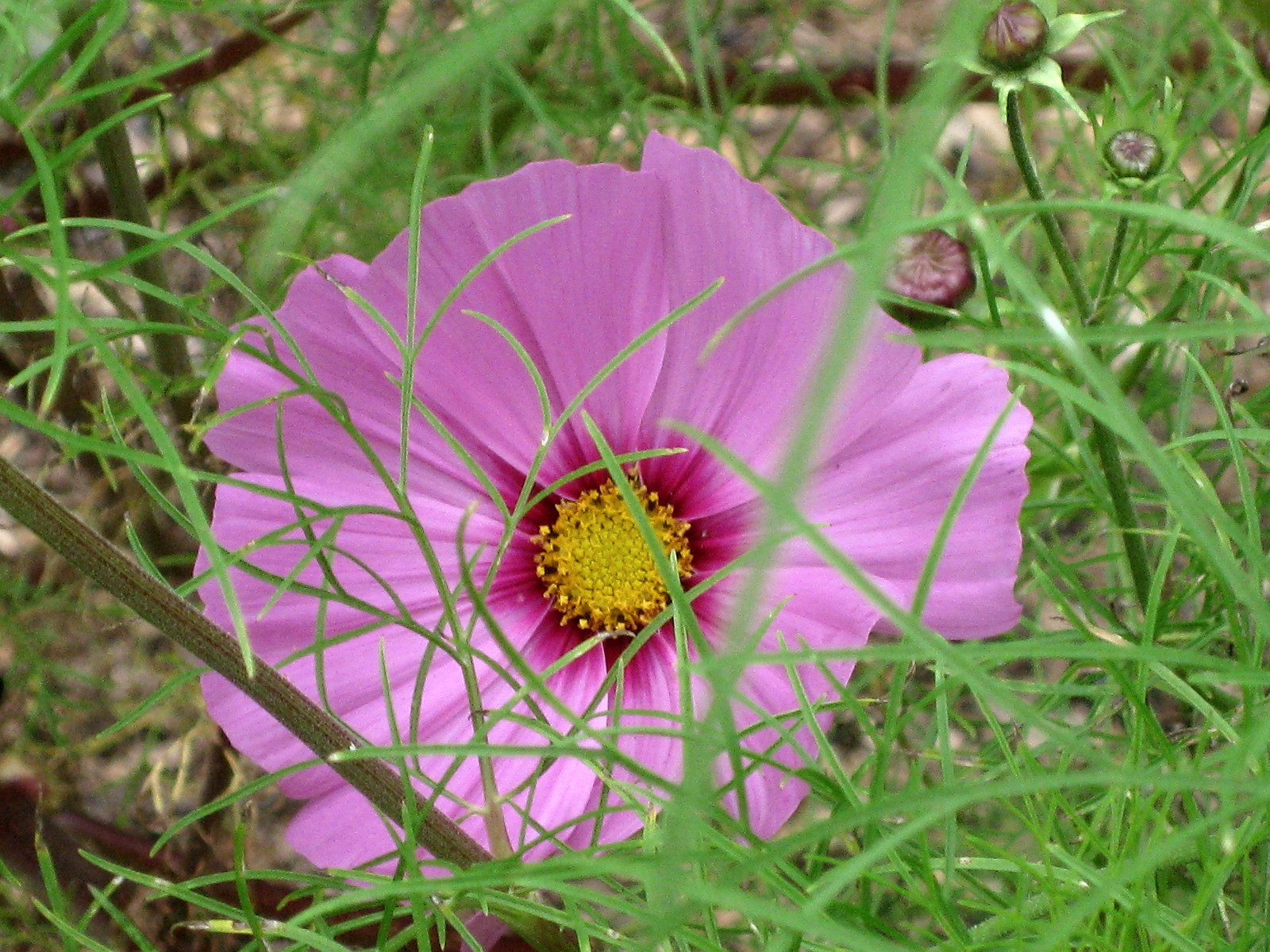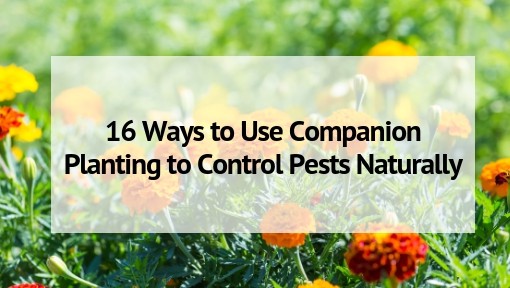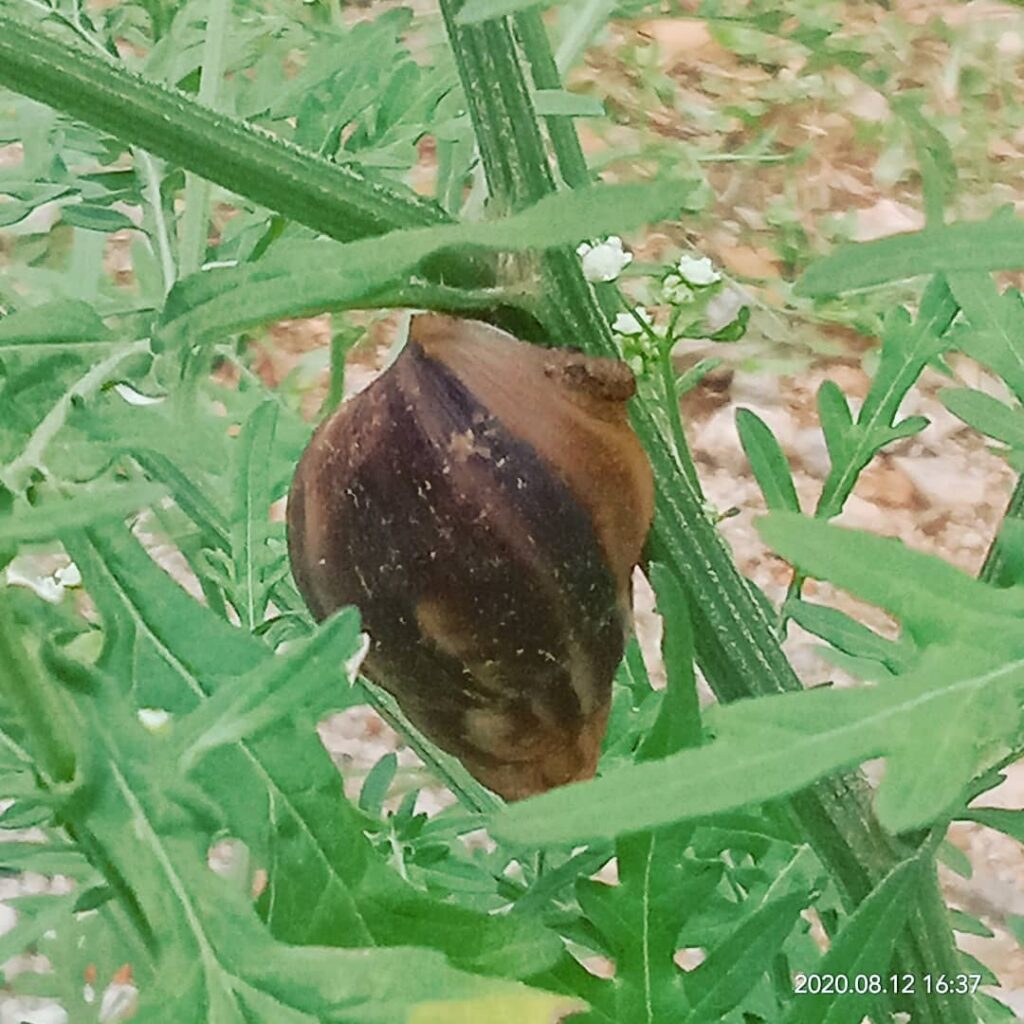Companion planting for pest control is a gardening technique that involves planting certain plants close together to deter pests from the garden. Examples of companion plants are garlic, onions, marigolds, basil, and nasturtiums. Garlic repels aphids while onions can help keep away flying insects like cabbage moths.
Marigolds contain a chemical that acts as an insect repellent and also have strong-smelling foliage which helps to confuse pests looking for their target plant. Basil has essential oils that act as a natural pesticide when ingested by bugs and its pungent smell makes it difficult for them to locate their prey. Nasturtiums are able to lure caterpillars away from other crops with their sweet scent while making sure they don’t become too numerous in one area due to the taste of their leaves being very distasteful to most insects.
Companion planting offers an organic way of reducing pest damage without using any pesticides or chemicals in your garden.
The practice of companion planting for pest control is a great way to keep your garden healthy and safe from bugs. By strategically placing certain plants near each other, you can repel pests or attract beneficial insects that will help ward off unwanted visitors. Companion planting can also encourage the growth of stronger, more resilient plants since some types of vegetation provide nutrients to their neighbors.
Most vegetables and herbs are excellent candidates for companion planting, so it’s easy to find combinations that work well in any garden!

Credit: www.agardenforthehouse.com
How Does Companion Planting Help With Pest Control?
Companion planting is beneficial for pest control as it utilizes the natural characteristics of certain plants to deter pests. For example, some herbal and aromatic plants can be used to repel unwanted insects due to their strong scent, such as garlic and chives which can help ward off aphids or basil which helps keep mosquitoes away. Additionally, marigolds are known for their ability to attract beneficial predatory insects like lacewings that feed on destructive pests like aphids.
This provides a natural way of controlling pests without having to use harsh chemicals and other artificial methods.
What Can I Plant in My Vegetable Garden to Keep Pests Away?
An effective way to keep pests away from your vegetable garden is by planting certain plants that naturally repel them. For example, herbs like garlic, lavender, and rosemary can help ward off common garden pests such as aphids and whiteflies. Additionally, companion planting with marigolds or chrysanthemums can help to deter beetles, moths, and other harmful insects.
Finally, adding a few insect-repelling flower varieties such as sunflowers or zinnias will provide an attractive addition to your vegetable garden while also discouraging unwanted bugs.
What is One Companion Flower That Helps Deter Pests?
Marigolds are an excellent companion flower for deterring pests. Marigolds contain Pyrethrum, which is a natural insecticide that repels many common garden pests such as aphids, beetles, squash bugs and other soft-bodied insects. Planting marigolds in your vegetable and flower gardens can help keep those pesky critters away from your plants without the use of harsh chemicals.
Additionally, marigold flowers attract beneficial insects like ladybugs to the garden which helps control pest populations.
What Flower is Used for Pest Control?
Marigolds are one of the most popular flowers used in pest control. The bright orange and yellow petals act as a natural deterrent to pests like aphids, squash bugs, cabbage worms and whiteflies. Marigolds also have an aromatic scent that can repel other insects like mosquitoes.
Planting marigolds around your garden beds or near entryways will keep unwanted bugs away from your plants and home. Additionally, marigold blossoms contain pyrethrum which is a naturally occurring insecticide used for controlling pests in organic gardens without harming beneficial insects or pollinators.
Top 5 Companion Plants to Maximize Yields, Enhance Flavor and Deter Pests
Companion Planting Mistakes
Companion planting is a great way to maximize your garden’s potential, but it can be easy to make mistakes. Some common ones include planting two plants that require different soil nutrient levels in the same bed, not providing enough space between plants, and choosing incompatible species. To ensure you get the most out of companion planting and avoid these mistakes, take some time to research which plants are compatible with each other before beginning.
Plants to Deter Pests in Vegetable Garden
Plants can be a great way to naturally deter pests in your vegetable garden. Planting certain herbs, flowers, and trees near your vegetables can help repel insects like aphids, slugs, beetles, and more. Marigolds contain a natural pesticide that will kill harmful nematodes while also providing vibrant color to the garden.
Basil is another plant that helps deter common pests from taking over your crops. Additionally, many plants such as garlic or chives can act as repellents for larger animals like rabbits and deer who may try to snack on your veggies!
Companion Plants for Vegetable Garden
Companion planting is a great way to optimize the growth of your vegetable garden. Companion plants are thought to help vegetables by repelling pests, increasing pollination, and providing nutrients. Some great companion plants for vegetables include marigolds, nasturtiums, lavender, and chives.
Marigolds repel nematodes and other insects while also helping attract beneficial predatory insects like ladybugs. Nasturtiums act as an insect trap crop by luring away aphids from nearby vegetables. Lavender helps keep rabbits away while chives can help deter aphids and Japanese beetles from eating your veggies!
Plants for Pest Control
Plants have long been used as a natural way to control pests in gardens and other outdoor spaces. Planting certain types of plants around your garden can help keep away unwanted insects, such as aphids, whiteflies, and caterpillars. Plants like marigolds, chrysanthemums, garlic and lavender are great for pest control because they contain compounds that act as natural repellents against these unwanted visitors.
Additionally, some flowers attract beneficial bugs like ladybugs which eat the bad bugs.
Flowers to Plant in Vegetable Garden to Deter Pests
Adding flowers to your vegetable garden can be a great way to naturally deter pests. Marigolds, calendula, and nasturtiums are all known for their ability to repel many common pests such as aphids and squash bugs. These brightly colored flowers make an attractive addition to any garden while providing natural pest control!
Planting them around the edges of your vegetable beds is a great way to keep pesky critters away from your crops.
Companion Planting Flowers
Companion planting flowers is a great way to create an attractive and vibrant garden while also providing benefits to the environment. When companion planted, flowers attract beneficial insects that prey on pests in your garden while producing beautiful blooms at the same time. The pollinators attracted by these plants are essential for maintaining healthy ecosystems and helping with crop production.
Additionally, companion planted flowers can help reduce weeds, conserve moisture in soil, increase plant health and provide habitat for wildlife.
Melon Companion Plants
Melon companion plants can help to improve the growth of melons in your garden. These companions are beneficial as they work together to repel pests, attract pollinators, and increase soil fertility. Examples of good melon companion plants include marigolds, celery, nasturtiums, oregano and garlic.
Additionally, planting a few sunflowers near melons will provide shade for the vines during hot summer days – helping them thrive even further.
Conclusion
Companion planting is a great way to protect your garden from pests. It offers an organic and natural alternative that not only helps prevent pest damage but also provides additional benefits such as improved soil fertility, increased yield, and enhanced beauty of the landscape. Additionally, companion plants often work together to attract beneficial insects which can help keep harmful insects in balance.
With careful planning and some experimentation, you can create a beautiful garden that will be both productive and pest-free!



